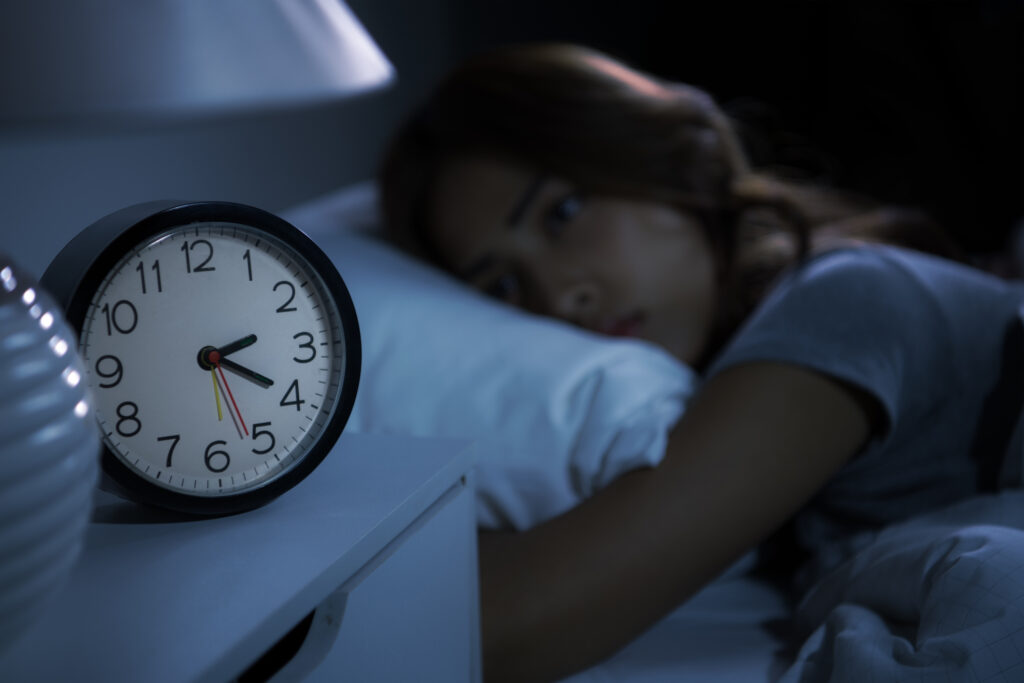All around the country, countless adults rely on cannabis to get a good night’s sleep. Even some of the most infrequent or casual consumers say they prefer using cannabis before bed rather than during the day.

However, little is known about the long-term effects of cannabis, particularly the long-term effects of cannabis as a sleep aid.
Is it Safe to Use Cannabis Before Bed?
THC, CBD, and CBN have demonstrated efficacy in improving sleep quality and reducing the time it takes to fall asleep with minimal side effects.
Generally speaking, the most common side effects associated with THC include:
- Psychoactive effects — i.e., euphoria and/or paranoia
- Dry Mouth
- Fatigue
- Increased heart rate
- Difficulties with short-term memory
These are considered relatively mild, especially in comparison to the side effects associated with prescription sleep aids.
Some individuals also report feeling “groggy” when they first wake up after using cannabis to help them fall asleep. But this feeling will dissipate after drinking some water or grabbing a cup of coffee.
Cannabis is also known to affect how often you dream. Many folks who use cannabis regularly report dreaming less frequently or not dreaming at all.
Read More: Does Cannabis Affect Dreaming?
For some, this may be beneficial — especially if you struggle with frequent nightmares.
What Happens if You Use Cannabis Every Night
The long-term effects of cannabis as a whole have sparked a lot of debate within the scientific and medical community. And the consensus is we need more data.
As you can imagine, it’s very challenging to track people throughout years of their life to measure the long-term effects of anything, be it cannabis or any other number of substances or lifestyle factors.
“While there is increasing evidence that cannabis intoxication negatively affects basal cognitive functions like episodic memory, attentional control, and motor inhibition, results on the long-term effects of heavy cannabis use, and potential recovery after abstinence, remain equivocal for most cognitive domains,” says a Current Opinion in Psychology review.
Long-term cannabis use is knowingly associated with developing a tolerance. This means you need to use more cannabis to achieve the same effects you experienced before with smaller amounts.
However, this tolerance isn’t permanent. You can “reset” your tolerance by taking a “t-break” (tolerance-break) for a few weeks, which will allow you to go back to your regular dosage.
Additionally, it’s known that quitting “cold turkey” can lead to significant sleep disturbances. If you’re used to taking cannabis regularly to help you sleep and suddenly stop, you may have difficulty falling or staying asleep.
Key Takeaways: You May Develop a Tolerance to the Sleep-Inducing Effects of Cannabis
The long-term effects of cannabis have sparked a lot of debate among health experts and scientists. Often, you’ll hear experts or legislators cite the lack of data on the long-term effects as one of the biggest things holding back cannabis legislation.
More data is needed before any conclusions can be drawn about the long-term effects of cannabis — especially as a sleep aid. However, the short-term effects of cannabis are generally considered mild, especially in comparison to other prescription sleep medications.
It is possible to develop a tolerance to cannabis over time, decreasing its efficacy as a sleep aid. However, you can “reset” your tolerance by taking a t-break.
References
- Think About Cannabis. (2022, April 4). Can THC and CBD Help Me Sleep? https://www.thinkaboutcannabis.com/health-wellness/can-thc-and-cbd-help-me-sleep
- Think About Cannabis. (2022, September 19). How does CBD differ from CBN? https://www.thinkaboutcannabis.com/cannabis-science/how-does-cbd-differ-from-cbn
- Kroon, E., Kuhns, L., & Cousijn, J. (2021, April). The short-term and long-term effects of cannabis on cognition: recent advances in the field. Current Opinion in Psychology, 38, 49–55. https://doi.org/10.1016/j.copsyc.2020.07.005
- Gates, P., Albertella, L., & Copeland, J. (2015, April 20). Cannabis withdrawal and sleep: A systematic review of human studies. Substance Abuse, 37(1), 255–269. https://doi.org/10.1080/08897077.2015.1023484